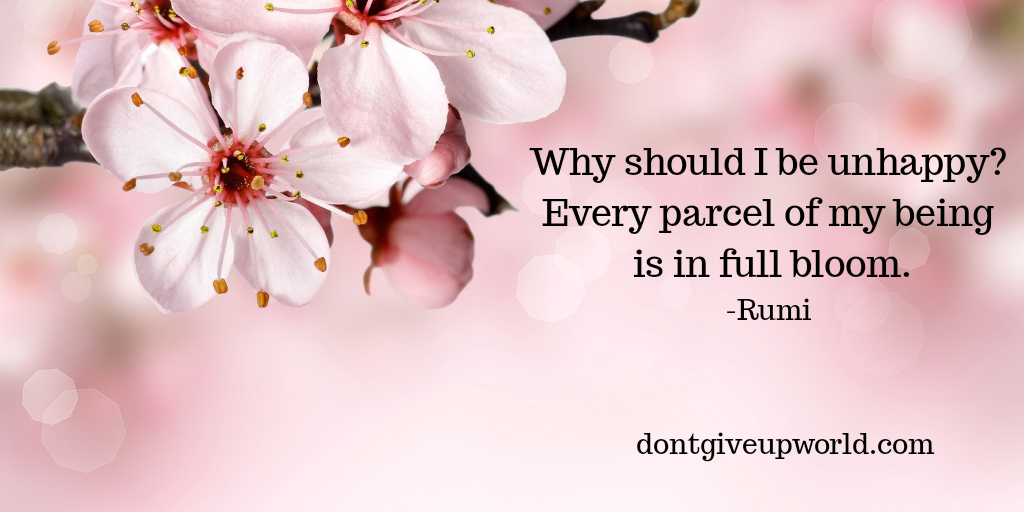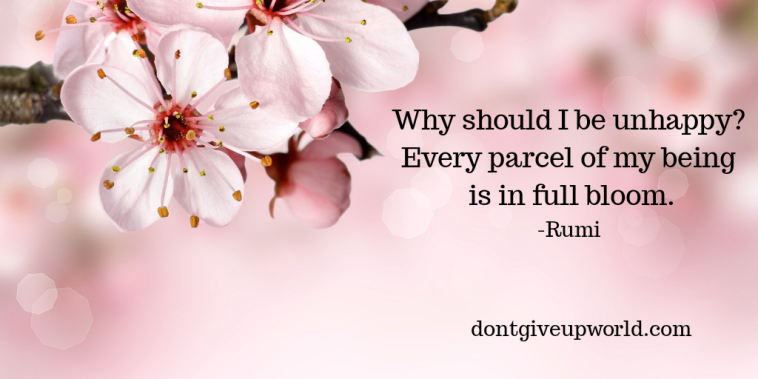
Why should I be unhappy?
Every parcel of my being
Is in full bloom.
Rumi
Rumi’s profound reflection challenges individuals to reevaluate their perspective on happiness, urging them to recognize the inherent beauty and joy within themselves. His words inspire a shift in mindset towards embracing happiness as a natural state of being. Quote on happiness by Rumi
Rejecting Unhappiness
Rumi’s rhetorical question, “Why should I be unhappy?” prompts introspection and encourages individuals to confront the notion of unhappiness. By questioning the validity of unhappiness, Rumi challenges the belief that it is an inevitable aspect of life. Quote on happiness by Rumi
Celebrating Self-Realization
The imagery of every parcel of Rumi’s being being in full bloom evokes a sense of vitality and self-realization. It symbolizes the richness and abundance of life’s experiences, suggesting that true happiness arises from embracing one’s authentic self and embracing personal growth.
Transitioning to Contentment
Transition words such as “however,” “yet,” and “therefore” help to connect ideas and emphasize the importance of transitioning from unhappiness to contentment. Rumi’s words serve as a reminder that happiness is a choice that stems from within, independent of external circumstances.
Embracing Inner Fulfillment
Rumi’s perspective challenges individuals to look inward for fulfillment rather than seeking it from external sources. By recognizing the beauty and completeness within themselves, individuals can cultivate a sense of inner peace and contentment that transcends fleeting moments of happiness.
Conclusion
In conclusion, Rumi’s reflection on happiness encourages individuals to reject unhappiness and embrace the inherent joy within themselves. By celebrating self-realization and transitioning to a mindset of contentment, individuals can cultivate lasting happiness that enriches every aspect of their lives.
For More Info Click Here
More Such Article Click Here




GIPHY App Key not set. Please check settings